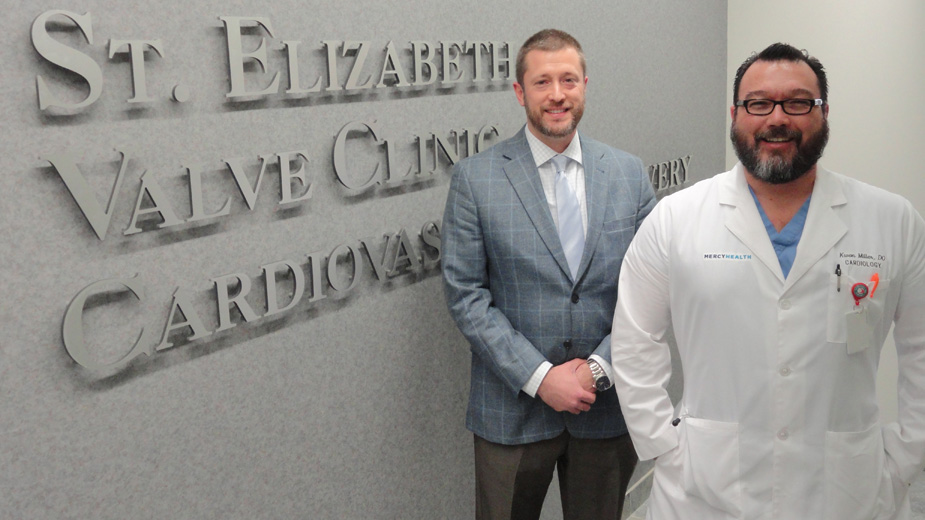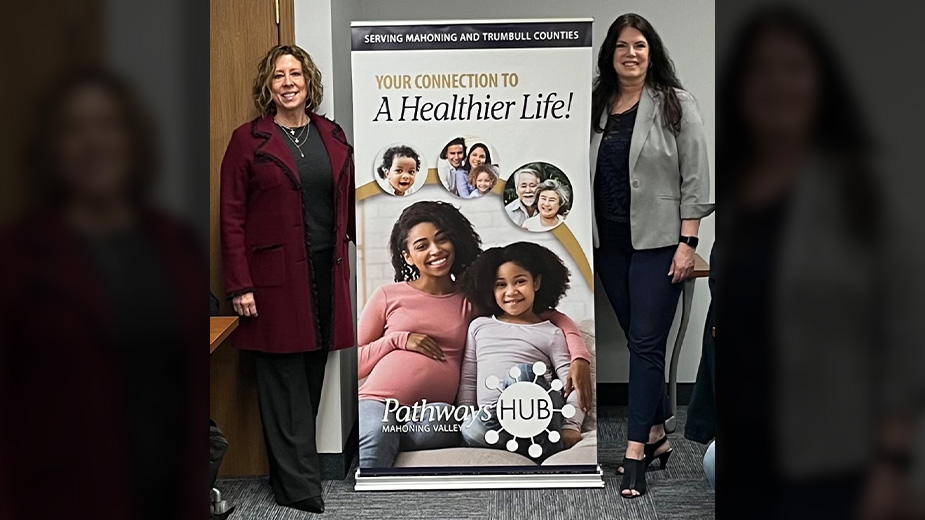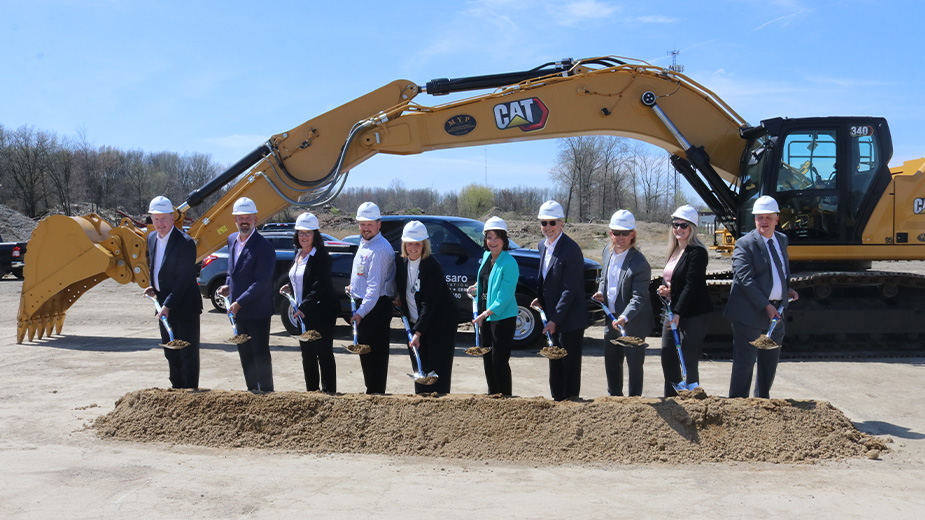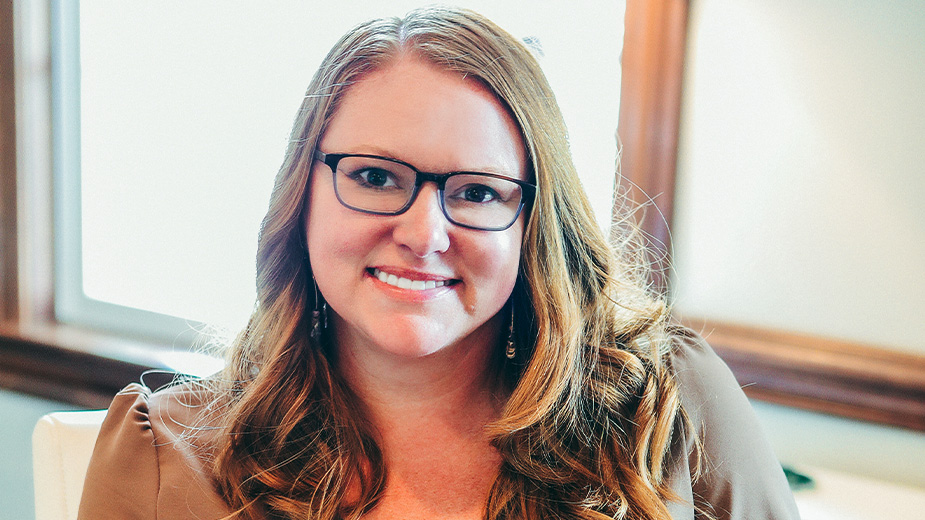Mercy’s Cardiac Service Line Encourages Specialization
YOUNGSTOWN – In the next few weeks, cardiovascular surgeons at Mercy Health Youngstown for the first time will implant transcatheter valves, or aortic valve replacements, without open-heart surgery.
That’s just one of the innovations resulting from the creation of Mercy’s cardiovascular service line from the merger of three cardiology practices.
The service line was put in place just over a year ago but the process began in 2011 and 2012 with the integration of three local cardiology practices – Diagnostic Cardiology Associates, Advanced Cardiology and Ohio Heart Institute – into Mercy Health.
“That’s when we began the journey,” says Rod Neill, chief operating officer of Mercy Health Physicians, Mercy’s physician network. “It was a physician-led effort.”
“Overall there’s basic movement nationally toward employment of physicians by systems and institutions versus a private-practice model,” remarks Dr. Kwon Miller, physician leader of Mercy’s cardiology service line. Where a decade ago 70% of doctors were in private practice and 30% were employed by institutions, “nowadays it’s the opposite. The majority of doctors are employed by systems,” he reports.
Cardiology reflects society in that the technology is advancing at a “phenomenal” pace, Miller continues. “It’s accelerating so fast that that it’s impossible for any particular doctor of cardiology to keep abreast of all the different facets available.”
In private practice, cardiologists were responsible for “being a jack of all trades but a master of none,” he says.
The 20-plus physicians in the Mercy cardiovascular service line now specialize in particular types of procedures, such as interventional, invasive-type procedures (placement of stents and related procedures) and electrophysiology. Getting away from the paradigm of a few individuals doing many procedures allows the physicians to hone their skills in these areas through additional practice.
“Basically we took the labor and divided it into subsections,” Miller says. The first year has involved “working through the logistics,” such as how to divide the work, he notes.
Miller, an invasive cardiologist, gave up his privileges to perform cardiac catheterization to sub-specialize in imaging “to support the system,” he says.
“The cardiologists most definitely made professional sacrifices through the integration,” Neill confirms.
The efforts resulted in collaboration and sub-specialization. “In the end, that results in better care for the community, and better access, too,” Neill says. “We’re able to provide more time in the office or we’re able to get patients that need to be seen in a timely manner,” he says.
Having the collaborative also allows Mercy to “springboard” by bringing new technologies and innovations more commonplace in larger markets to the Mahoning Valley. Among them is the upcoming transcatheter aortic valve replacement procedure – referred to as TAVR – a month hence, Miller says.
“We’re also doing something called Watchman,” he continues. The procedure involves implanting nanotechnology, “for lack of a better way of describing it,” into the pulmonary artery. “It continuously monitors pressure to allow us to know when somebody’s going into congestive heart failure before they have the symptoms,” he says. The procedure has been shown to “increase the width of diagnosis of a problem before it becomes a problem.”
Mercy is bringing on board a heart failure-certified cardiologist, “a cardiologists whose sole job is taking care of people with weakened hearts,” he says.
“Basically we’re taking strides to become a cardiovascular institute. So not only are the cardiologists all partners, but we’re partnered with our heart surgeons and our vascular surgeon as well. It’s kind of a vertical integration of all things related to the blood vessels of the body.”
The result of the specialization and expanded capabilities is more patients staying in the Mahoning Valley for treatment rather than going to Pittsburgh or Cleveland.
Mercy physicians began performing atrial fibrillation ablations in 2012 and today perform more than 150 a year, “which is on par with any major institution in the country,” Miller says. As for general cardiology, with the addition of the recently added and oncoming services, Mercy physicians can do nearly anything that can be done elsewhere.
“It’ll be just short of transplant, which we’re not intending to ever be a transplant center,” he says. Only 2,000 transplants or so are done annually nationwide and even the number performed at the Cleveland Clinic is double digits, he points out.
The collaboration has allowed Mercy to expand its service through a partnership with East Liverpool City Hospital, helping to fill a void in that community.
As the physicians have integrated into the cardiovascular service line, Mercy has upgraded its inpatient and outpatient facilities and equipment, Neill says.
“We’ve bought a new ultrasound unit for all our facilities within the past year for echoes and that type of testing,” he reports.
In addition, the Poland office is completing a multimillion-dollar renovation and construction soon will begin on the Youngstown office. “Just this past fall we finished construction on our Warren practice,” he adds.
Pictured: Rod Neill oversees operations of Mercy Health Physicians. Kwon Miller is the physician leader of the cardiology practice.
Copyright 2024 The Business Journal, Youngstown, Ohio.



